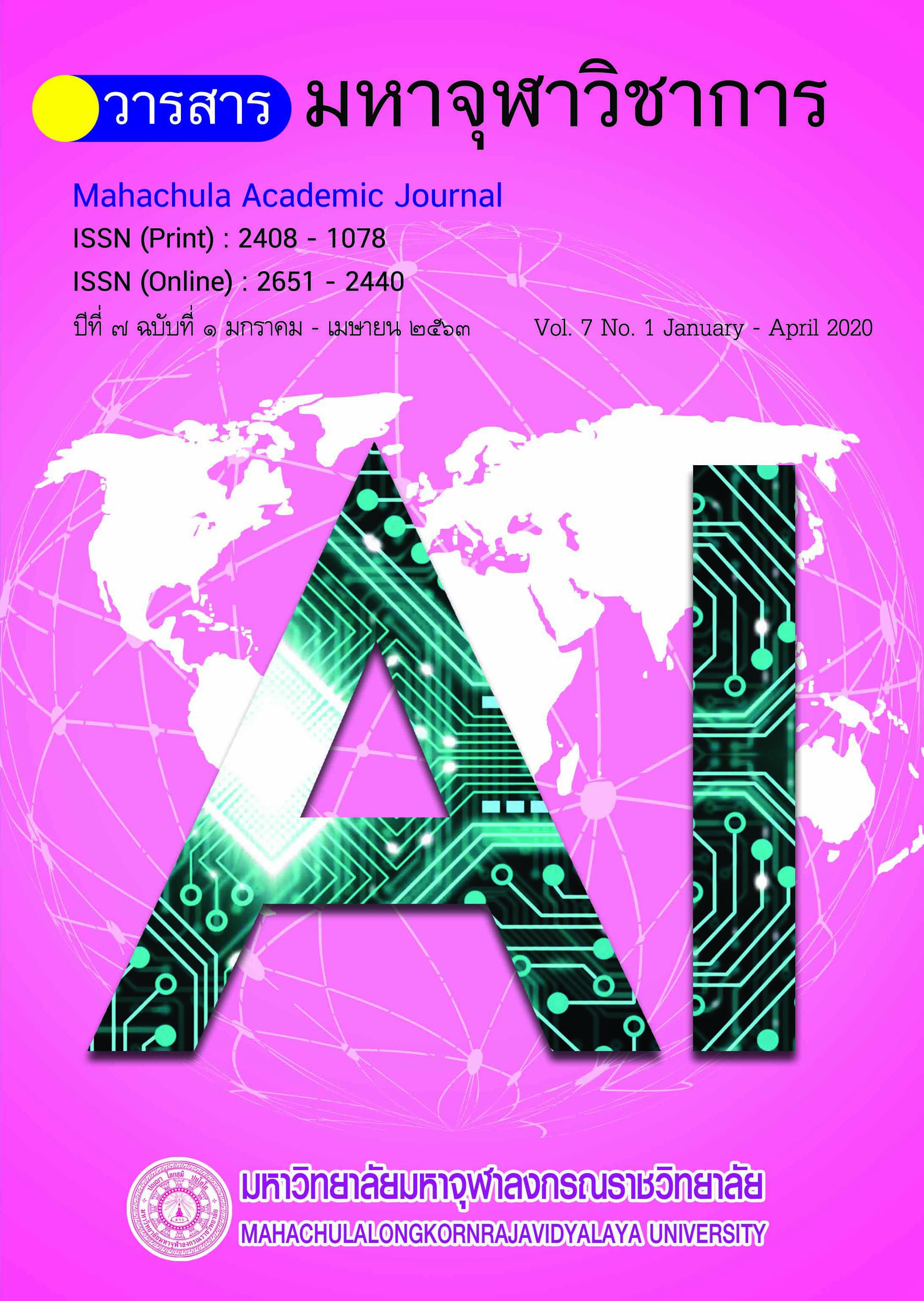Coexistence of Peoples in Multicultural Societies of Thailand
Main Article Content
Abstract
documentary analysis and data synthesis from the fives sub-research projects and then the researcher will summarize all them to be the new acknowledges for all peoples in multicultural societies of Thailand.
From the research, it was found that the principles of coexistence of peoples in multicultural societies of Thailand according to the principles of fives important religions in Thailand, i.e. Buddhism, Islam, Christianity, Hinduism, and Sikhs. Most of them, they have conformed to the principles that are loving-kindness, charity, respect in diversity, and cooperation of them into any activities continuously. The principles of coexistence
of peoples in multicultural societies of Thailand in both of principles of religions and human right harmonized into the same ways. Because of them, religions in Thailand have different identities, but theirs teachings are similar to these points. For examples, the fives precepts of Buddhism, the ten commitments of Christianity, the six faiths of Islam, etc. Meanwhile, the principles of coexistence of the five sub-research projects from the field researches have balanced that are: Coexistence of peoples in peace, practice follow up the teachings of their religions, respects the rights and freedom of each other and cooperation of them in communities continuously. These have balanced to the human right which focused on the rights and freedom of each other as we all are the world. They have to emphasize to the basic rights and freedom of humanity and civil rights into Constitutional Law of Nation. In the last point, the principles of coexistence of peoples in multicultural societies of Thailand and creation of social stability based on the proper ways of the principles of coexistence of peoples in multicultural societies of Thailand are coexistence of peoples in peace of each other, cooperation of them in any activities continuously and creation of happy for all peoples, organizations, and societies. They have to focus the growth and peace of peoples and Nation in the end.
From the research, the researcher would like to suggest that government should have peaceful coexistence of religious followers. They should aware their roles and functions, solve happened problems with together without hidden agendas and changes their views of coexistence from the negative views into the positive views.
Article Details
References
ครองชัย หัตถา, รศ.ดร. สังคมพหุวัฒนธรรมกับความมั่นคงของชาติ กรณีจังหวัดชายแดนภาคใต้. รายงานการศึกษาวิจัย. สนับสนุนการวิจัยโดย สำนักงานสภาความมั่นคงแห่งชาติ. กรุงเทพมหานคร : สำนักพิมพ์คณะรัฐมนตรีและราชกิจจานุเบกษา, ๒๕๕๐.
บรรจง ฟ้ารุ่งสาง. การศึกษาในวิถีพหุวัฒนธรรมชายแดนใต้. พิมพ์ครั้งที่ ๒. เชียงใหม่: ห้างหุ้นส่วนสามัญสมใจนึก พริ้นท์ แอนด์ ก๊อบปี้ เซ็นเตอร์, ๒๕๕๗
พระมหาธานินทร์ อาทิตวโร (คำกมล), ดร., บทบัญญัติทางศาสนา : แนวคิดการสร้างสันติในสังคมไทย. รายงานการวิจัย. พระนครศรีอยุธยา : สถาบันวิจัยพุทธศาสตร์ มหาวิทยาลัยมหาจุฬาลงกรณราชวิทยาลัย, ๒๕๕๙.
พรอุษา ประสงค์วรรณะ. การศึกษาชุมชนต้นแบบต่างศาสนาที่อยู่ร่วมกันอย่างสันติในแขวงวัดกัลยาณ์ เขตธนบุรี กรุงเทพมหานคร. วิทยานิพนธ์พุทธศาสตรมหาบัณฑิต, บัณฑิตวิทยาลัย: มหาวิทยาลัยมหาจุฬาลงกรณราชวิทยาลัย, ๒๕๕๖.
สุไรยา วานิ. การอยู่ร่วมกันของชุมชนในสังคมพหุวัฒนธรรม : กรณีศึกษาตำบลทรายขาว อำเภอโคกโพธิ์ จังหวัดปัตตานี. วารสารการเมืองการปกครอง ปีที่ ๔ ฉบับที่ ๑ กันยายน ๒๕๕๖ - กุมภาพันธ์, ๒๕๕๗.
อานันท์ กาญจนพันธ์. พหุวัฒนธรรมในบริบทของการเปลี่ยนผ่านทางสังคมและวัฒนธรรม. รายงานการวิจัย. ศูนย์ภูมิภาคทางสังคมศาสตร์และการพัฒนาอย่างยั่งยืน. คณะสังคมศาสตร์: มหาวิทยาลัยเชียงใหม่, ๒๕๕๑.
อธิปัตย์ คลี่สุนทร. “การศึกษาพหุวัฒนธรรม (Multicultural Education)”. ในสำนักงานเลขาธิการคุรุสภา, สารานุกรมวิชาชีพครูเฉลิมพระเกียรติพระบาทสมเด็จพระเจ้าอยู่หัวเนื่องในวโรกาสมหามงคลเฉลิมพระชนมพรรษา ๘๐ พรรษา. กรุงเทพมหานคร: โรงพิมพ์ สกสศ, ๒๕๕๒. [ออนไลน์]. แหล่งที่มา: www.moe.go.th [ ๒๑ ธันวาคม ๒๕๖๑].


